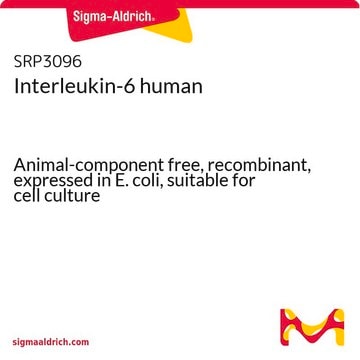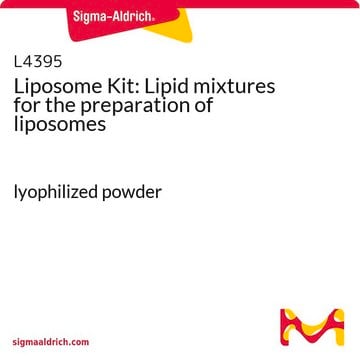SRP3149
sCD14 human
recombinant, expressed in HEK 293 cells, ≥95% (SDS-PAGE), ≥95% (HPLC), suitable for cell culture
Synonym(s):
soluble CD14
Sign Into View Organizational & Contract Pricing
All Photos(1)
About This Item
UNSPSC Code:
12352202
NACRES:
NA.32
Recommended Products
biological source
human
recombinant
expressed in HEK 293 cells
Assay
≥95% (HPLC)
≥95% (SDS-PAGE)
form
lyophilized
mol wt
41.6 kDa
packaging
pkg of 50 μg
technique(s)
cell culture | mammalian: suitable
impurities
<0.1 EU/μg endotoxin, tested
color
white
UniProt accession no.
shipped in
wet ice
storage temp.
−20°C
Gene Information
human ... CD14(929)
Sequence
TTPEPCELDD EDFRCVCNFS EPQPDWSEAF QCVSAVEVEI HAGGLNLEPF LKRVDADADP RQYADTVKAL RVRRLTVGAA QVPAQLLVGA LRVLAYSRLK ELTLEDLKIT GTMPPLPLEA TGLALSSLRL RNVSWATGRS WLAELQQWLK PGLKVLSIAQ AHSPAFSCEQ VRAFPALTSL DLSDNPGLGE RGLMAALCPH KFPAIQNLAL RNTGMETPTG VCAALAAAGV QPHSLDLSHN SLRATVNPSA PRCMWSSALN SLNLSFAGLE QVPKGLPAKL RVLDLSCNRL NRAPQPDELP EVDNLTLDGN PFLVPGTALP HEGSMNSGVV P
Physical form
Lyophilized from 10 mM Sodium Phosphate, pH 7.5.
Reconstitution
Centrifuge the vial prior to opening. Reconstitute in water to a concentration of 0.1-1.0 mg/ml. Do not vortex. This solution can be stored at 2-8°C for up to 1 week. For extended storage, it is recommended to further dilute in a buffer containing a carrier protein (example 0.1% BSA) and store in working aliquots at -20°C to -80°C.
Storage Class Code
11 - Combustible Solids
WGK
WGK 3
Flash Point(F)
Not applicable
Flash Point(C)
Not applicable
Certificates of Analysis (COA)
Search for Certificates of Analysis (COA) by entering the products Lot/Batch Number. Lot and Batch Numbers can be found on a product’s label following the words ‘Lot’ or ‘Batch’.
Already Own This Product?
Find documentation for the products that you have recently purchased in the Document Library.
Time to abandon dogma: CD14 is expressed by non-myeloid lineage cells.
Jersmann HP
Immunology and Cell Biology, 83(5), 462-467 (2005)
Proteolysis of monocyte CD14 by human leukocyte elastase inhibits lipopolysaccharide-mediated cell activation.
Le-Barillec K
The Journal of Clinical Investigation, 103(7), 1039-1046 (1999)
Richard L Kitchens et al.
Journal of endotoxin research, 11(4), 225-229 (2005-09-24)
LPS binding protein (LBP) and CD14 play key roles in promoting innate immunity to Gram-negative bacteria by transferring LPS to the signaling receptor complex, MD-2/Toll-like receptor 4 (TLR4). LBP and soluble CD14 (sCD14) can also inhibit responses to LPS by
Binding of CD14 to Mycoplasma genitalium-derived lipid-associated membrane proteins upregulates TNF-a.
He J
Inflammation, 37(2), 322-330 (2014)
CD14 protein acts as an adaptor molecule for the immune recognition of Salmonella curli fibers.
Rapsinski GJ
The Journal of Biological Chemistry, 288(20), 14178-14188 (2013)
Our team of scientists has experience in all areas of research including Life Science, Material Science, Chemical Synthesis, Chromatography, Analytical and many others.
Contact Technical Service






